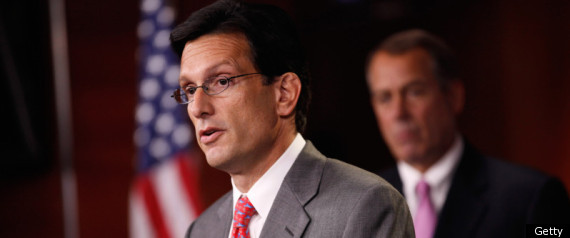 WASHINGTON -- Setting a collision course with Democrats that could drag out for months, House Republicans on Thursday unveiled plans to cut federal money for job training, heating subsidies and grants to better-performing schools.
WASHINGTON -- Setting a collision course with Democrats that could drag out for months, House Republicans on Thursday unveiled plans to cut federal money for job training, heating subsidies and grants to better-performing schools.The draft measure for labor, health and education programs also seeks to block implementation of President Barack Obama's signature health care law, cut off federal funds for National Public Radio and Planned Parenthood, and reduce eligibility for grants for low-income college students.
Democrats and tea party Republicans opposed the bill, blocking it from advancing through even the easy initial steps of the appropriations process on Capitol Hill. Instead of moving through the Appropriations Committee and the House as a whole, the $153 billion measure is instead expected to be wrapped into a larger omnibus spending bill this fall or winter that would fund the day-to-day operating budgets of Cabinet agencies.
Negotiations between Republicans controlling the House, the Democratic Senate and the White House are sure to be arduous. The measure is laced with conservative policy "riders" opposed by Democrats that would affect worker protections under federal labor laws and block the Education Department from enforcing rules on for-profit colleges that are often criticized for pushing students to take on too much debt.
"It looks like we're in for a long, difficult process," said Rep. Rosa DeLauro, D-Conn.
House Appropriations Committee Chairman Harold Rogers, R-Ky., said excessive and wasteful spending over the years had put many programs and agencies on "an irresponsible and unsustainable fiscal path."
"To protect critical programs and services that many Americans rely on – especially in this time of fiscal crisis – the bill takes decisive action to cut duplicative, inefficient and wasteful spending to help get these agency budgets onto sustainable financial footing."
The measure represents a $4 billion, or 2.5 percent, cut below current spending levels for the programs it covers. Democrats complained that the measure is bearing the brunt of cuts imposed this summer as part of an agreement between Republicans and Obama on agency spending levels for the upcoming decade as part of legislation permitting an increase in the government's borrowing limit.
Republicans singled out a handful of the most popular programs funded by the measure – health research and aid to schools – for small increases. Democrats were open to the idea that some of the eligibility restrictions to the Pell Grant program as potential reforms that could put the popular program for low-income college students on a more sustainable footing. The measure would, for example, cut off Pell Grants after six years instead of allowing students to receive them for up to nine years.
The measure would cut heating subsidies for the poor by $1.3 billion, or 28 percent, despite demand elevated by the weak economy and high heating oil prices. And a plan to "zero out" the Title X family planning program, while pleasing to conservatives, is a dead letter with Democrats.
Origin
Source: Huffington
No comments:
Post a Comment